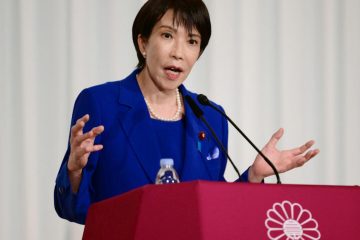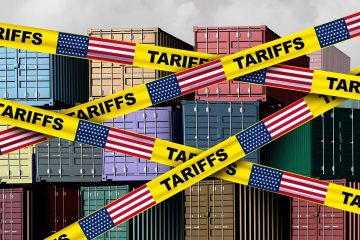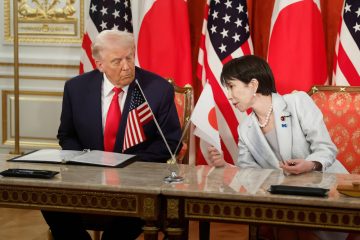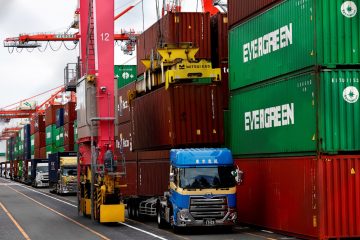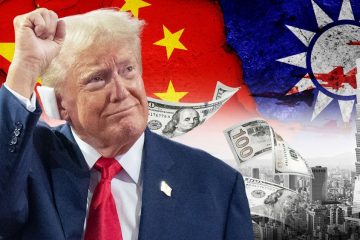Chinese white paper on US trade says it doesn’t want trade imbalance
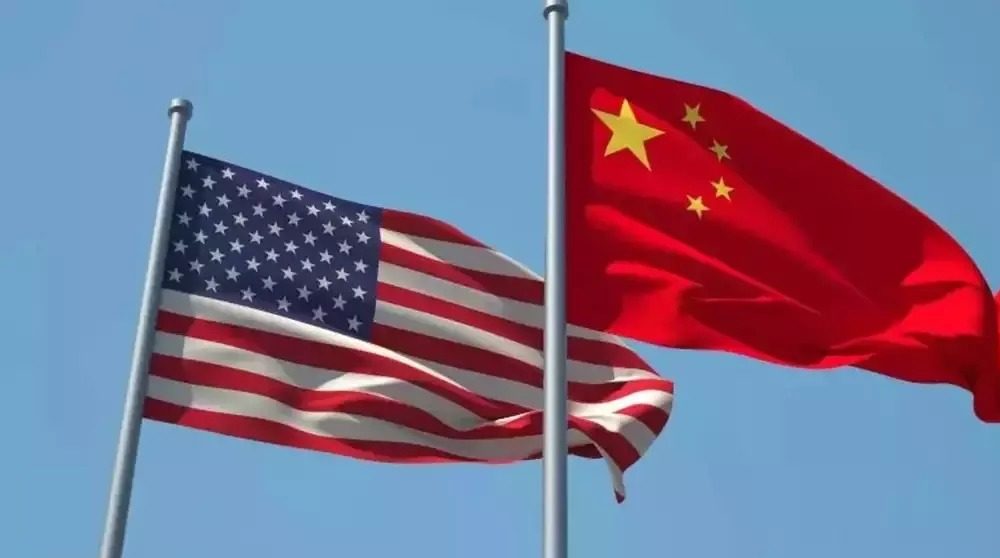
China has published a white paper detailing its position on economic and trade relations with the United States, advocating for collaboration while expressing concerns over Washington’s increasing protectionist policies under President Donald Trump. The State Council Information Office released a document on Wednesday, titled ‘China’s Position on Some Issues Concerning China-US Economic and Trade Relations.’ The report underscores the advantages of bilateral trade, emphasizes China’s adherence to international trade standards, and points out what it characterizes as inequitable trade practices by the United States.
The release of the white paper occurs in the context of a growing trade conflict between the two countries. Trump has recently implemented tariffs affecting all of its trading partners. In a strategic move following Trump’s implementation of reciprocal tariffs, China has announced a significant 34 percent tariff on goods imported from the United States. In response, Washington has enacted an additional tariff of 50 percent. The United States has increased its tariffs on China to a staggering 104 per cent, intensifying the ongoing trade conflict between the two nations. China has announced a significant increase in tariffs on U.S. goods, raising the rate from 34 percent to 84 percent, with the new rates set to take effect on Thursday. The white paper highlighted the longstanding mutually beneficial trade relations between China and the United States, which have persisted for decades. Bilateral trade in goods has surged to $688.28 billion in 2024, marking a staggering 275-fold increase compared to the volume recorded in 1979, the year when diplomatic relations were established between the two nations.
The United States has defended its imposition of tariffs by highlighting the trade deficit that exists between the two nations. In a strategic move, China has emphasized the importance of dialogue and has officially unveiled its white paper detailing trade relations. The United States serves as a crucial market for Chinese exports, whereas China stands out as a significant purchaser of American agricultural products, semiconductors, and various other goods. China continues to hold its position as the leading export destination for a range of significant US products, such as soybeans and cotton. The nation is also a substantial purchaser of American integrated circuits, coal, automobiles, agricultural products, semiconductors, medical devices, and various other goods.
China has clarified that it does not aim to create a trade imbalance with the United States. In light of ongoing US apprehensions regarding China’s trade surplus, the report contends that Beijing does not intentionally pursue these economic disparities. The data highlights a significant reduction in China’s current account surplus, which has decreased from 9.9 percent of GDP in 2007 to just 2.2 percent in 2024, supporting this assertion. China has highlighted that American companies have reaped substantial profits from their operations in the country, with local sales reaching nearly $490.52 billion in 2022, a figure that greatly surpasses the earnings of Chinese firms in the United States. Beijing has reported a decline in its current account surplus over the years, addressing claims that it intentionally sustains a trade imbalance. The report indicates that US exports to China have experienced a remarkable increase of more than 648 percent since 2001, significantly outpacing the overall growth rate of US exports, which stands at 183 percent for the same timeframe. The services sector has experienced notable expansion alongside the trade in goods. The bilateral services trade has seen a remarkable sevenfold increase from 2001 to 2023, with the United States holding a substantial surplus of $26.57 billion. This growth has been propelled by key sectors including travel, intellectual property royalties, and transportation.
China says it has adhered to the terms of the 2020 trade agreement with the United States. The Chinese government maintains that it has completely complied with the Phase One trade agreement, a pact established in early 2020 designed to alleviate trade tensions. The report outlines Beijing’s initiatives aimed at strengthening intellectual property protection, reforming trademark and patent legislation, and addressing cyber-related intellectual property violations. According to the white paper, China has broadened market access for a range of US agricultural products, such as beef, poultry, and dairy. Furthermore, the removal of foreign ownership limits in the financial sector has enabled prominent US firms, including Goldman Sachs, BlackRock, and American Express, to enhance their foothold in China.
China has leveled accusations against the United States, claiming that it has failed to uphold its trade commitments. Beijing has issued a strong condemnation of Washington for not adhering to its obligations outlined in the prior trade agreement. The accusation directed at the United States involves the imposition of arbitrary export restrictions on Chinese companies, exerting pressure on entities such as TikTok, and leveraging national security concerns as a rationale to obstruct investments. The report further criticized the United States for its lack of cooperation on critical trade issues, including poultry exports and pesticide regulations, while simultaneously enforcing tariffs under Section 301 – a U.S. trade law permitting tariffs on nations identified as participating in unfair trade practices.
China has issued a strong condemnation of the United States’ export controls on semiconductor and artificial intelligence technologies, asserting that these measures are detrimental to the economies of both countries and are causing disruptions in global supply chains. The report indicated that these measures have resulted in an estimated $130 billion decline in market value for US companies. China warns that US protectionist measures pose a significant threat to global trade dynamics.
The white paper reaffirmed China’s previous statements, characterizing US trade policies as a potential risk to global economic stability. Beijing has expressed strong disapproval regarding the revocation of China’s ‘Most Favoured Nation’ (MFN) trade status, which had afforded the country preferential tariff treatment. Officials argue that this decision contravenes the principles established by the World Trade Organisation (WTO).
The organization expressed concerns regarding the recent increases in US tariffs and the ongoing anti-subsidy investigations, asserting that these measures create artificial trade barriers and lead to higher costs for consumers in the United States. The Chinese government has refuted claims connecting the nation to the fentanyl crisis, asserting that it maintains stringent regulations on these substances and has no documented instances of exporting them to North America. In the face of rising tensions, China’s latest white paper emphasizes the need for renewed diplomatic efforts to address trade disputes, a consistent approach adopted by Chinese leaders since the initial announcement of tariffs by Trump. China has underscored the importance of collaboration between the world’s two largest economies, highlighting its critical role in sustaining global economic stability, bolstering supply chains, and promoting innovation.
In a strategic move, China has actively sought to enhance its relationships with neighboring countries and the European Union, particularly in light of the Trump administration’s intensified trade policies. China has reaffirmed its dedication to World Trade Organization regulations, emphasizing its ongoing support for free trade initiatives. The nation has consistently lowered tariffs, decreasing from an average of 15.3 percent in 2001 to 7.3 percent in 2024, while fully adhering to its WTO obligations since 2010.



